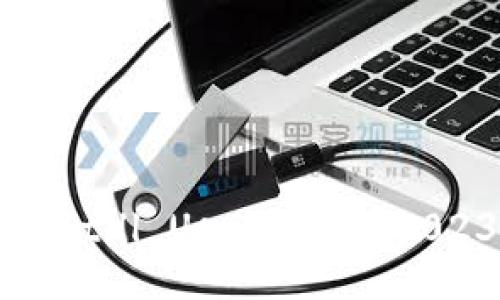Blockchain wallets have become an essential part of the cryptocurrency ecosystem, allowing users to store, send, and receive various digital currencies securely. As the world transitions into digital assets, many potential users are curious about the relevance and usability of blockchain wallets in 2023. This article aims to provide a deep dive into whether blockchain wallets are still functional and relevant today, how they have evolved, and what you can expect moving forward.

A blockchain wallet is a software program that allows users to interact with their cryptocurrency. Unlike a traditional wallet, which holds cash, a blockchain wallet enables users to manage their digital assets through their public and private keys. The public key is akin to an account number that others can use to send you cryptocurrency, while the private key should be kept secret as it enables access to your funds.
There are different types of blockchain wallets, including online wallets, mobile wallets, desktop wallets, hardware wallets, and paper wallets. Each type has its pros and cons regarding security, accessibility, and ease of use. In 2023, the functionalities of these wallets have expanded, making them indispensable tools for anyone interested in cryptocurrencies.
Since the inception of Bitcoin in 2009, blockchain wallets have gone through numerous transformations. Early wallets were functional but lacked user-friendly interfaces and security features. However, advancements in technology and increased regulations have led to the development of more secure and user-friendly wallets.
In 2023, several features have emerged that enhance the usability of blockchain wallets. For instance, multi-signature wallets require more than one private key to authorize a transaction, adding an extra layer of security. Additionally, integration with decentralized finance (DeFi) platforms has made it convenient for users to stake, lend, and borrow directly from their wallets.

Absolutely! Blockchain wallets are not only still usable in 2023, but they are also more relevant than ever. The cryptocurrency market has seen a significant uptick in adoption, with many individuals and businesses embracing digital currencies for transactions. The rise of non-fungible tokens (NFTs) and DeFi applications has also prompted the need for more versatile wallets.
Importantly, the development and improvement of blockchain technology have made wallets safer. Users can now find wallets with advanced security features like biometric authentication and hardware integrations, making them more robust against cyber threats. With this ongoing development, blockchain wallets are set to remain a crucial component of the cryptocurrency realm.
While blockchain wallets are generally safe and functional, users must navigate several concerns. Among these are security issues, user error, regulatory implications, and the user experience. Each of these aspects can significantly impact how effectively an individual can utilize a blockchain wallet.
Security will always be a major concern. With frequent headlines about hacks and fraud in the cryptocurrency world, users must be proactive in safeguarding their wallets. Choosing properly vetted wallets and employing best practices like enabling two-factor authentication can substantially reduce risks.
There are several types of blockchain wallets, each with its own strengths and weaknesses. The main categories include:
Choosing the best wallet for you depends on factors like your frequency of transactions, the amount of cryptocurrency you hold, and your comfort level with technology. For casual users, mobile or online wallets might suffice, while serious investors may prefer the security of hardware wallets.
Securing your blockchain wallet is paramount, especially in a marketplace that is often targeted by cybercriminals. Here are several strategies you can implement:
By adhering to these security measures, you can greatly reduce the likelihood of losing your assets to theft or hacking attempts.
Fees can vary significantly depending on the type of wallet you use and the transactions that you perform. Here are the common fees you may encounter:
To minimize costs, you should carefully compare wallet options and their fee structures. Additionally, timing your transactions during periods of lower network congestion can help save on fees associated with transactions.
If you lose access to your blockchain wallet, whether due to forgetting your password or losing access to your device, recovery may be possible if you have taken the right precautions. Most wallets provide a recovery phrase or seed phrase upon initial setup. This phrase can be used to recover your private keys and regain access to your funds.
In the event that you lose your wallet but have this phrase saved securely, follow these steps:
If you did not save your recovery phrase or it was destroyed, unfortunately, access to those funds may be permanently lost. It is crucial that you keep your recovery phrase in a secure and accessible location to avoid disastrous losses.
Blockchain wallets and cryptocurrency exchanges serve different purposes, but they also complement each other. A wallet is where you store your cryptocurrency, while an exchange is a platform that allows you to buy, sell, or trade cryptocurrencies.
When you wish to acquire cryptocurrency, you typically create an account on an exchange and deposit funds. Once you purchase cryptocurrencies, they can be stored in your exchange wallet or transferred to your blockchain wallet for safekeeping.
Here are some important points to note:
Understanding the symbiotic relationship between wallets and exchanges will enable you to manage your crypto assets more effectively and with greater security.
The landscape of blockchain wallets is evolving, with various innovations on the horizon. Some anticipated advancements include:
In summary, blockchain wallets continue to be integral to the cryptocurrency ecosystem, and with ongoing technological innovations, their relevance and usability in 2023 and beyond are assured.
--- 这个结构提供了易于阅读的内容,涵盖了与区块链钱包相关的多个主题和问题,为用户提供了丰富的信息。在撰写过程中,可以根据特定的策略进一步内容,以提高其在搜索引擎中的排名。